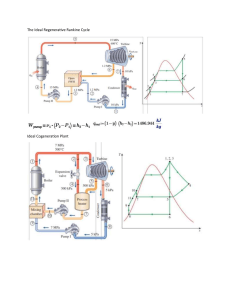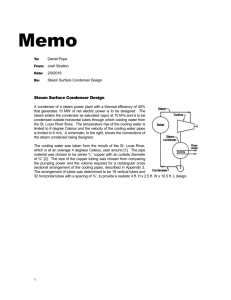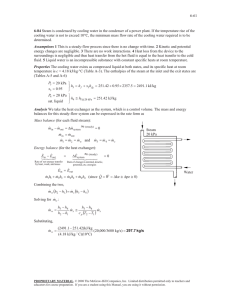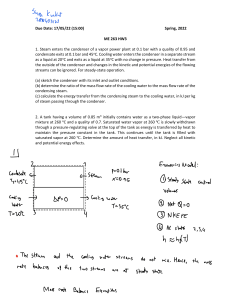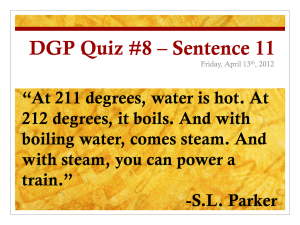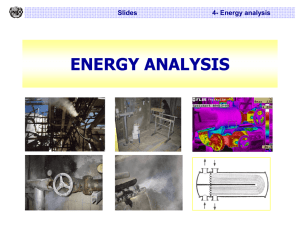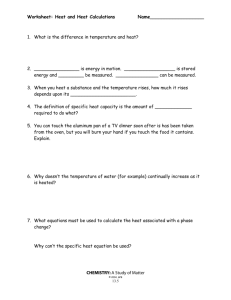13-41 Steam is condensed by cooling water in the
advertisement
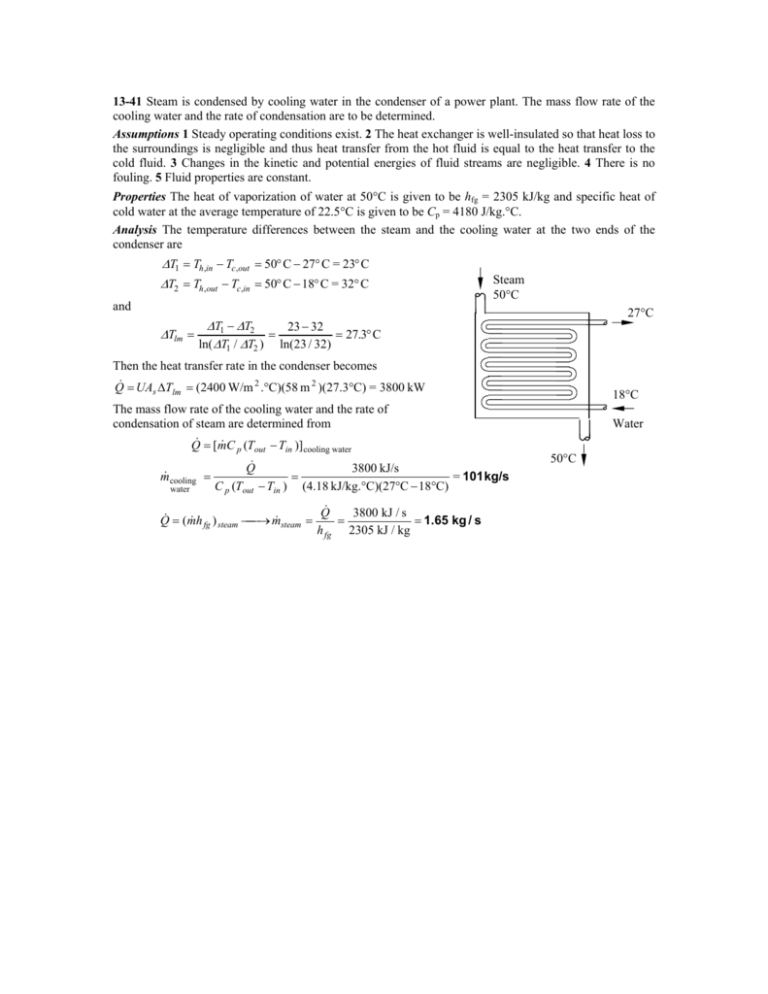
13-41 Steam is condensed by cooling water in the condenser of a power plant. The mass flow rate of the cooling water and the rate of condensation are to be determined. Assumptions 1 Steady operating conditions exist. 2 The heat exchanger is well-insulated so that heat loss to the surroundings is negligible and thus heat transfer from the hot fluid is equal to the heat transfer to the cold fluid. 3 Changes in the kinetic and potential energies of fluid streams are negligible. 4 There is no fouling. 5 Fluid properties are constant. Properties The heat of vaporization of water at 50°C is given to be hfg = 2305 kJ/kg and specific heat of cold water at the average temperature of 22.5°C is given to be Cp = 4180 J/kg.°C. Analysis The temperature differences between the steam and the cooling water at the two ends of the condenser are ∆T1 = Th ,in − Tc,out = 50° C − 27° C = 23° C ∆T2 = Th ,out − Tc,in = 50° C − 18° C = 32° C and Steam 50°C 27°C ∆T1 − ∆T2 23 − 32 ∆Tlm = = = 27.3° C ln( ∆T1 / ∆T2 ) ln(23 / 32) Then the heat transfer rate in the condenser becomes Q& = UA ∆T = (2400 W/m 2 .°C)(58 m 2 )(27.3°C) = 3800 kW s lm The mass flow rate of the cooling water and the rate of condensation of steam are determined from Q& = [m& C (T − T )] p m& cooling = water out in Q& C p (Tout − Tin ) = cooling water 3800 kJ/s = 101 kg/s (4.18 kJ/kg.°C)(27°C − 18°C) 3800 kJ / s Q& & fg ) steam → m& steam = = = 1.65 kg / s Q& = (mh h fg 2305 kJ / kg 18°C Water 50°C
